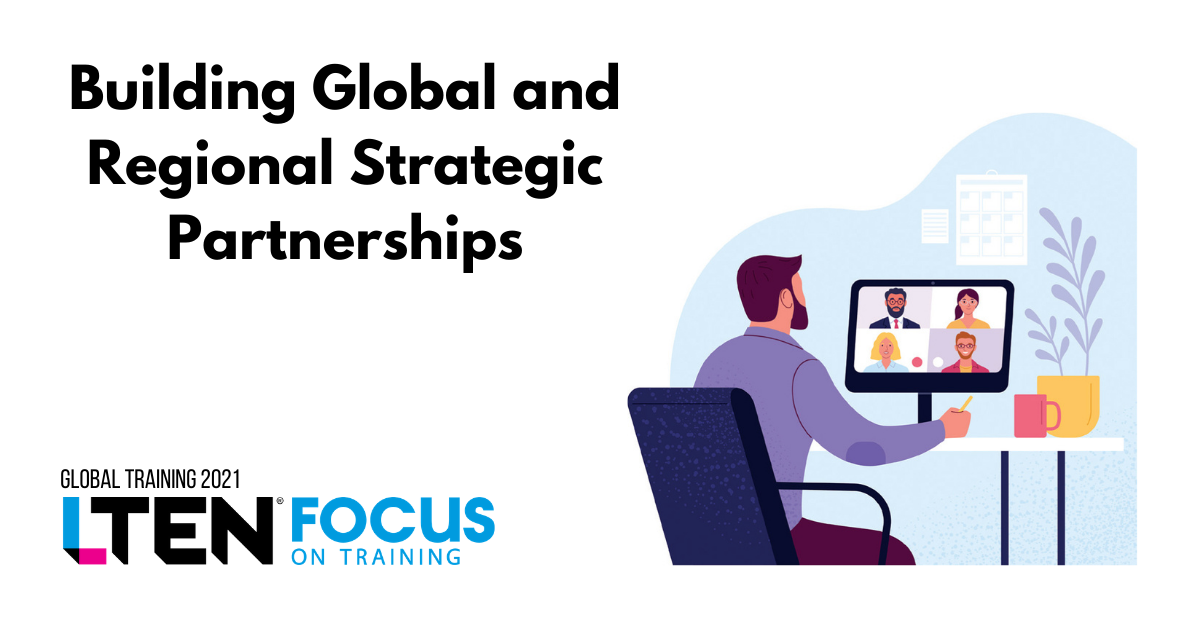
Building Global and Regional Strategic Partnerships
Feature Story – By Ann DiBiase
The right mindset provides the space for global teams to grow
 As a global commercial training and development leader, it is important to identify key behaviors that can foster the development of strategic partnerships between global and regional teams.
As a global commercial training and development leader, it is important to identify key behaviors that can foster the development of strategic partnerships between global and regional teams.
The key to a strong global or regional partnership is the ability to connect with a mindset of curiosity, genuineness, empathy and patience. Collaborating with this mindset can help to develop the trust needed to build strategic plans to enable increased consistency and efficiency and clear roles and responsibilities between global and regional teams.
These behaviors could be likened to one of Stephen Covey’s 7 Habits of Highly Effective People, “seek first to understand, then to be understood.” To really seek to understand, you need to create a judgement-free zone and develop a desire to understand – a desire to see things from others’ points of view, to see their reasons and to feel what they feel. Utilizing these behaviors helps to create a shared vision and understanding of what success looks like for the entire team — global, regional and local.
Approaching one another with this mindset provides the space to allow global and regional teams to develop together a flexible governance structure to support a variety of initiatives, which will withstand the challenges of the business.
Here is an example of what a flexible governance approach could be:
- Global teams can take the lead to enable increased consistency and efficiency by:
- Building the training and development vision and strategy.
- Identifying key areas of focus.
- Developing core programs and resources in partnership with regions.
- Regional teams can focus on developing a local tailored approach, which includes:
- Shaping and contributing to the global vision, key areas identification and program/resource building.
- Working with local brand and commercial stakeholders to localize and prioritize key areas of focus.
- Building and executing their local roadmap(s).
Utilizing a flexible governance approach helps to establish a foundation between global and regional teams. Building and maintaining upon this foundation is important and key to a successful strategic partnership.
To do this, teams may want to think about setting some key principles or guidelines they can use as a standard operating approach. Setting some structure on how to work with each other and what to expect from each other can help to continue to strengthen the alignment between global and regional to meet the organization’s objectives.
Here are some suggested principles:
- Communicate, Communicate, Communicate
- Focus on honest conversations. Use a shared language and listen to concerns.
- Be transparent about strategic and tactical plans and key issues to minimize duplication of efforts and maximize opportunities for collaboration.
- Listen actively. Display genuine interest in the concerns of the region.
- Schedule regular touchpoints.
- Build rapport. Remember to make time at the beginning of calls to learn more about your global and regional colleagues. Check in on how they are doing, and listen to other challenges they may be having.
- Remember You Are a Global Team
- Listen, learn, discuss and understand cultural differences.
- Slow down the pace and use familiar language to actively draw contribution from all team members.
- Be prepared to define/interpret content.
- Learn and Celebrate as a Team
- Hold one another accountable and learn from the challenges.
- Regularly assess global and regional deliverables, time frames and allocated resources.
- When things go wrong, learn from it and course-correct.
- Celebrate group and individual successes.
Navigating the global and regional strategic partnership takes time and commitment. However, a “seek to understand” mindset, a flexible governance structure and the creation of key team guidelines may provide the behaviors and process by which teams can align for future planning.
Ann DiBiase is senior director, global/U.S. commercial training & development, for Alnylam Pharmaceuticals. Email Ann at adibiase@alnylam.com. The views and opinions expressed in this article are those of the author and do not necessarily reflect the official policy or position of Alnylam Pharmaceuticals.








